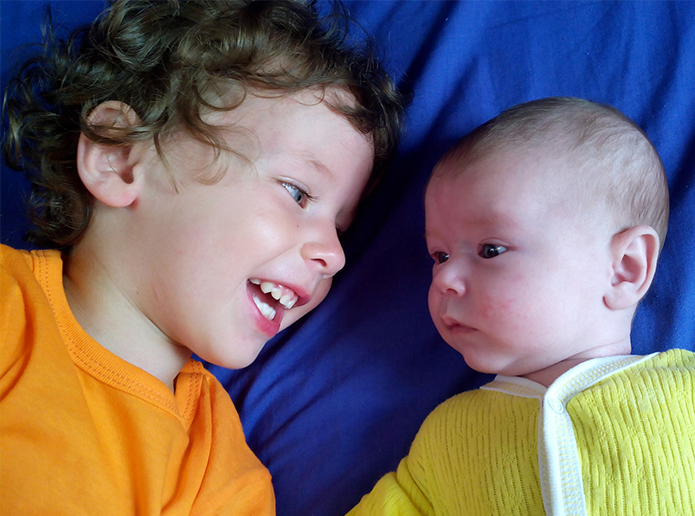Many parents say that being a parent is the toughest job they have ever had. We know that having a new baby increases the risk for experiencing stress, anxiety and postnatal depression (PND) in new parents.
Up to one in every seven new mums in Australia can experience PND, and about half of their partners.
If you feel that you or your partner may be suffering depression, anxiety or stress, make sure that you talk to each other and to friends and family. The start of PND may be gradual and many people experience it without realising it.
If you think that it’s not something that you can handle on your own, or with your partner and family, seek professional support. Don’t let things go on for too long.
Getting advice and information for yourself and your partner is a positive action. Beyondblue have some great resources on emotional health and wellbeing.
Some facts about postnatal depression (PND)
- During the first week after birth, up to 80% of new mothers will get the ‘baby blues‘. That means you may feel quite sensitive, teary, have mood swings, feel irritable or anxious. This happens because your body is withdrawing from the placental hormones.
- These symptoms usually peak 3 to 5 days after delivery and go away in about two weeks. If your low mood lasts more than two weeks you may be having something more than the baby blues. It could be postnatal anxiety or postnatal depression. It is important for you to talk to your GP or Child Health Nurse as soon as possible.
- Anxiety occurs in about one in five women after birth and postnatal depression occurs in 16% of women.
- It is also very common to experience postnatal anxiety and postnatal depression at the same time. In fact, in up to 50% of cases these two conditions co-occur.
Symptoms of PND
There are many ways to treat postnatal depression, but the first step is to know the signs and symptoms and find help. Common symptoms include:
- Feelings of sadness, anger, tiredness, anxiety, panic and low self-esteem
- Sleep problems, low energy, changes in eating habits, lack of interest in everyday activities
- Difficulty concentrating or making decisions
- Thoughts of running away or hurting your baby
Not everyone with postnatal depression will experience all these symptoms. If you have been experiencing any of these symptoms for more than a few days, it is best to speak to your doctor.
Every parent needs to look after themselves whether or not they are experiencing stress, anxiety, or depression.
Factors contributing to PND
The exact causes of PND are still not known. Some contributing factors might include:
- Physical changes: Even an easy birth has major effects on the female body. The sudden drop in pregnancy hormones affects brain chemicals. Broken sleep and exhaustion can also contribute to depression.
- Emotional changes: Adjusting to parenthood can be hard. New parents have to deal with the constant demands of a baby, broken sleep, changes in the relationship with their partner, and often the loss of independence.
- Social changes: Society puts lots of demands and expectations on new parents, which they may feel they need to live up to. You may find yourself less able to keep up contact with friends and workmates.
It’s OK to get support
“It takes a village to raise a child”. Don’t be afraid to ask for help and support in taking care of a new baby and yourself. Identify who you can call on for advice and support, like friends and extended family members and discuss any feelings you may be experiencing with them sooner rather than later.
Plan for how you can deal with busy times in the household such as meal times, bath and bedtimes, appointments, chores, work times and time out for yourself.
Make yourself familiar with the places in the community where help might be found, like parent groups, community, child, and parent centres, your local child health professionals or other groups where you will find like-minded people.
Getting symptoms of depression and anxiety under control can improve your quality of life, overall experience of parenthood and relationship with your new baby. Don’t hesitate to seek help.
Want to know more?
The Raising Children Network – New mums: the first weeks
Raising Children Network – Parents: looking after yourself
Raising Children Network – Grown ups: looking after yourself videos
Department of Health – Emotional health for new parents
KEMH – Common emotional problems
Post Antenatal Depression Association (PANDA): 1300 726 306
Contact your local child health nurse: 1800 022 222






